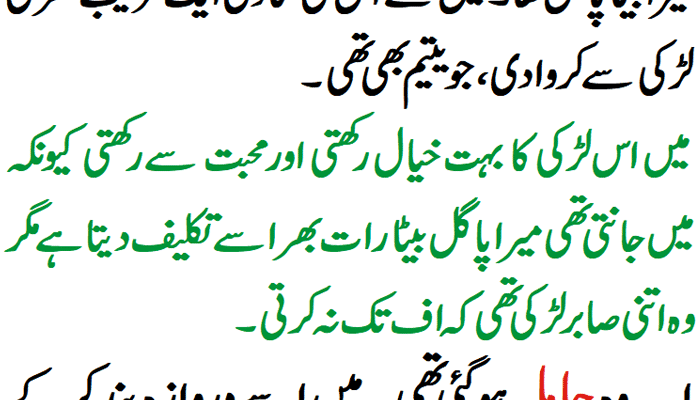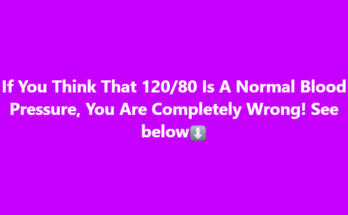High blood pressure, or hypertension, is one of the most common yet dangerous health issues in the modern world. It’s often called the “silent killer” because it rarely shows symptoms until it causes serious complications such as heart attack, stroke, or kidney disease. Fortunately, you don’t always need to rely solely on medication — several natural lifestyle changes can help reduce blood pressure quickly and effectively.
While there’s no magic overnight cure, combining a few evidence-based strategies can bring your numbers down within days or weeks, and keep them stable in the long run. This article explores how to naturally reduce high blood pressure fast — safely, effectively, and sustainably.
1. Understand What High Blood Pressure Means
Blood pressure measures the force of blood pushing against your artery walls. It’s expressed as two numbers:
Systolic pressure (the top number): the pressure when your heart beats.
Diastolic pressure (the bottom number): the pressure when your heart rests between beats.
Normal blood pressure is around 120/80 mmHg.
High blood pressure is usually defined as 130/80 mmHg or higher.
When blood pressure stays elevated, it damages blood vessels, forces the heart to work harder, and increases the risk of serious diseases. But the good news is, the body responds quickly to healthy changes — often within days.
2. Cut Back on Sodium (Salt) — Quickly
Excess sodium is one of the biggest culprits behind high blood pressure. It causes the body to retain water, increasing the volume of blood circulating in the arteries, which raises pressure.
Reducing sodium intake can lower blood pressure within a few days for many people.
Tips to Reduce Sodium Fast:
Avoid processed foods like canned soups, frozen meals, and snacks — they’re often loaded with salt.
Flavor food with herbs, spices, lemon, or garlic instead of salt.
Check labels — choose products labeled “low sodium” or “no added salt.”
Limit fast food and restaurant meals, which often contain excessive hidden sodium.
Aim for less than 1,500–2,000 mg of sodium per day, which equals about one teaspoon of salt.
3. Increase Potassium-Rich Foods
Potassium helps balance sodium in the body and relaxes blood vessel walls, which directly reduces blood pressure. Many people don’t get enough potassium in their diets.
Top potassium-rich foods include:
Bananas
Spinach and kale
Sweet potatoes
Avocados
White beans
Oranges
Yogurt
Try incorporating these into your daily meals. A potassium-rich diet can make a noticeable difference in blood pressure in as little as one week.
4. Stay Hydrated
Dehydration causes blood vessels to narrow, increasing resistance and pressure. Drinking plenty of water helps the kidneys flush out excess sodium and maintain normal blood volume.
Quick hydration tips:
Aim for 8–10 glasses of water per day.
Reduce caffeine and alcohol, which can dehydrate the body.
Add lemon, cucumber, or mint to make water more enjoyable.
When you’re hydrated, your blood flows more easily — easing strain on your heart.
5. Engage in Light Exercise Daily
Exercise strengthens the heart, allowing it to pump blood more efficiently with less effort. Regular physical activity can lower systolic blood pressure by 5 to 10 points within a few weeks.
Best types of exercise for lowering blood pressure fast:
Walking: A brisk 30-minute walk each day can show results in a week.
Cycling or swimming: Improves heart and lung function.
Yoga and stretching: Reduces stress and improves circulation.
Strength training: Builds muscle, boosts metabolism, and improves cardiovascular health.
If you’re new to exercise, start slowly — even 10 minutes of movement twice a day can make a difference.
6. Manage Stress Immediately
When you’re stressed, your body releases hormones like cortisol and adrenaline, which temporarily increase heart rate and blood pressure. Chronic stress keeps these hormones elevated, damaging arteries over time.
Quick ways to reduce stress naturally:
Practice deep breathing: Inhale deeply for 4 seconds, hold for 4, exhale for 6. Repeat for 5 minutes.
Try mindfulness or meditation for 10–15 minutes a day.
Take short breaks throughout your workday.
Spend time outdoors or listen to calming music.
Even a few minutes of relaxation can immediately reduce blood pressure and calm your nervous system.
7. Eat More Whole Foods — Avoid Processed Options
Ultra-processed foods are high in sodium, sugar, and unhealthy fats — all of which raise blood pressure. Switching to whole, natural foods can reduce hypertension quickly.
Focus on:
Fresh fruits and vegetables
Whole grains like oats, quinoa, and brown rice
Lean proteins (fish, chicken, beans)
Healthy fats (olive oil, nuts, seeds)
This pattern closely resembles the DASH diet (Dietary Approaches to Stop Hypertension) — one of the most effective eating plans for lowering blood pressure naturally.
8. Reduce Added Sugar and Refined Carbohydrates
Sugar doesn’t just affect weight — it directly impacts blood pressure by increasing insulin resistance and inflammation. Studies show that high sugar intake, especially from sodas, desserts, and processed snacks, contributes to hypertension.
To reduce sugar fast:
Replace sugary drinks with water or herbal tea.
Choose fruits instead of sweets.
Read labels — sugar hides under names like fructose, sucrose, or corn syrup.
Within a week of cutting added sugars, many people notice more stable energy levels and lower blood pressure.
9. Maintain a Healthy Weight
Extra weight increases the workload on your heart and blood vessels. Losing even 5–10 pounds can significantly lower blood pressure.
Weight-loss tips that work naturally:
Eat smaller, balanced meals.
Focus on high-fiber foods to stay full longer.
Move your body regularly.
Avoid late-night snacking and sugary beverages.
As your weight drops, your blood pressure often improves almost immediately.
10. Limit Alcohol Consumption
While small amounts of alcohol may have some heart benefits, too much raises blood pressure and damages blood vessels.
To lower blood pressure quickly:
Limit yourself to no more than one drink per day for women and two for men.
Choose alcohol-free days each week.
Stay hydrated when drinking.
Reducing alcohol can show noticeable improvements in blood pressure within days.
11. Get Enough Sleep
Poor sleep increases stress hormones and prevents the body from regulating blood pressure properly. Adults who sleep less than 6 hours a night are more likely to have hypertension.
Improve your sleep naturally:
Keep a consistent bedtime routine.
Avoid screens and caffeine before bed.
Make your bedroom cool, dark, and quiet.
Try relaxation techniques before sleep, such as meditation or reading.
Even one week of better sleep can reduce blood pressure and improve heart rhythm.
12. Try Natural Supplements (with Caution)
Some natural supplements have been shown to support healthy blood pressure levels. Always consult your healthcare provider before adding new supplements, especially if you’re on medication.
Common options include:
Magnesium: Helps relax blood vessels.
CoQ10: Supports heart function.
Hibiscus tea: Naturally lowers blood pressure.
Garlic extract: Known for its blood pressure–lowering properties.
Natural remedies can complement lifestyle changes, but they’re not substitutes for a balanced diet or professional care.
13. Quit Smoking — It Helps Fast
Every cigarette temporarily raises blood pressure and damages the lining of your arteries. Quitting allows your blood vessels to heal and your circulation to improve.
Many people notice improvements in blood pressure within 24 hours of quitting, and long-term benefits accumulate over time.
14. Monitor Your Blood Pressure Regularly
Tracking your blood pressure helps you see how your lifestyle choices affect your numbers. Home monitors are easy to use and give valuable feedback.
Keep a daily or weekly log — you’ll quickly see patterns and improvements as you make healthy changes.
15. Stay Consistent
While some of these strategies can reduce blood pressure within a few days, lasting results depend on consistency. The goal is not just to lower your numbers temporarily, but to create habits that support long-term heart health.
Combine multiple approaches — eat clean, move daily, sleep well, and manage stress — for the most powerful results.
Conclusion: Taking Control Naturally
High blood pressure doesn’t have to control your life or require lifelong medication for everyone. Nature provides powerful tools for healing — through food, movement, rest, and mindfulness.
By reducing sodium, eating more whole foods, exercising regularly, staying hydrated, and managing stress, you can naturally lower your blood pressure fast — and keep it under control for good.



